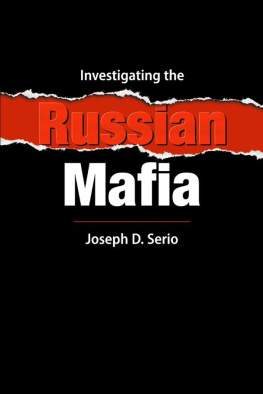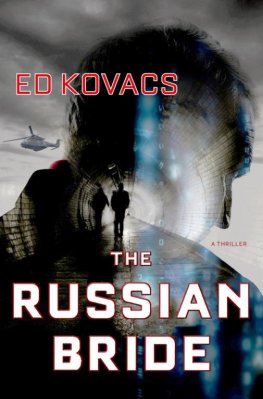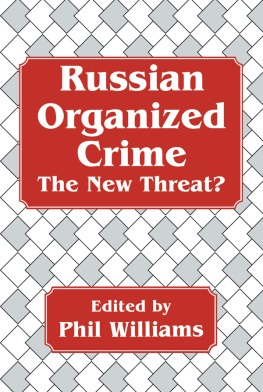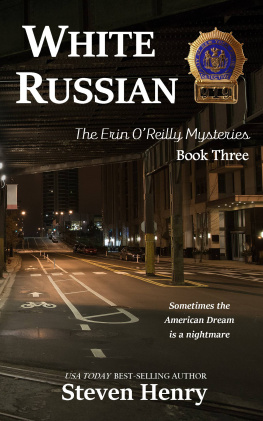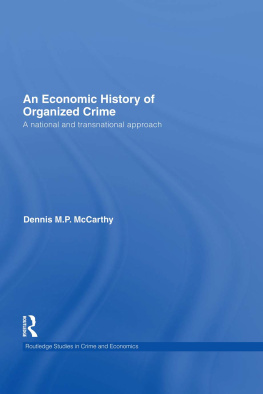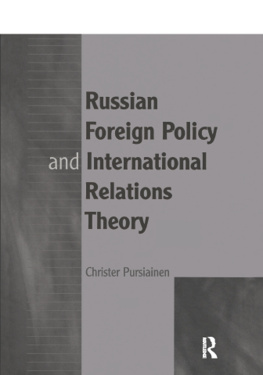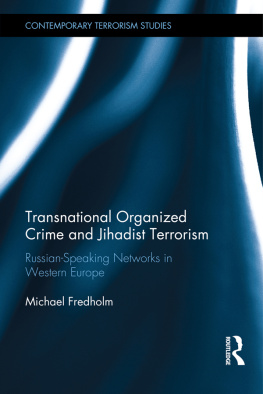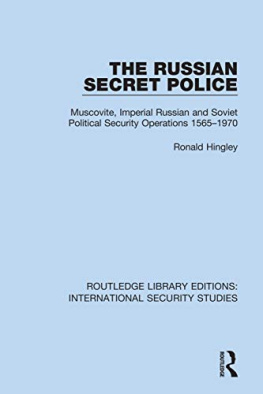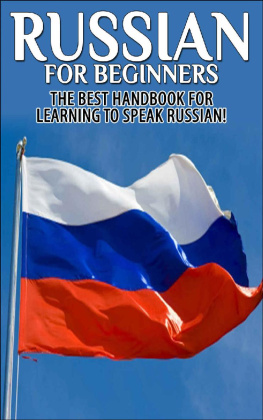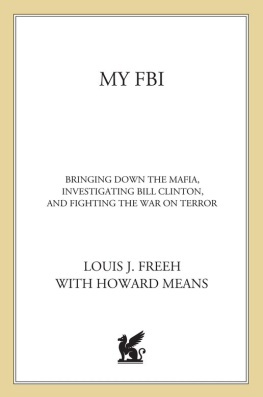I NVESTIGATING THE R USSIAN M AFIA
Investigating the Russian Mafia
Joseph D. Serio

Copyright 2008
Joseph D. Serio
All Rights Reserved.
Library of Congress Cataloging-in-Publication Data
Serio, Joseph, 1964-
Investigating the Russian mafia : an introduction for students, law enforcement, and international business / by Joseph D. Serio.
p. cm.
Includes bibliographical references and index.
ISBN 978-1-59460-225-2 (alk. paper)
1. Mafia--Russia (Federation) 2. Organized crime--Russia (Federation) I. Title.
HV6453.R83S47 2008
364.1060947--dc22
2008001758
Carolina Academic Press
700 Kent Street
Durham, North Carolina 27701
Telephone (919) 489-7486
Fax (919) 493-5668
Printed in the United States of America.
For Sasha Gorkin
CONTENTS
PREFACE
This book grew primarily out of the enthusiasm of students I encountered in the classroom and the curiosity of law enforcement officers I met in the field. While many of them had heard the dramatic reporting of the 1990s or read textbooks on organized crime in recent years, they understood that there was much more to know, about Russia generally and the context of the development of the Russian mafia in particular.
In undertaking this project, I wanted to present a slightly different perspective from other writers. Earlier works by well-qualified writers presented the Russian mafia without sufficient context for readers. The most popular books produced in the mid-1990s caught the imagination of the public through involved story telling and dramatic use of language, with what amounted to a mere glance at history and culture. Other books, of a more academic nature, were thick with theory or written in an inaccessible style. I have endeavored here to present a broad overview of the so-called Russian mafia through a consideration of language, statistics, culture, history, and Russian realities in a way that ultimately is like my lectures at the university: part investigation, part conversation, and part anecdote. I would encourage you, after reading this book, to explore the topic further. Two excellent, well-written, and detailed accounts are Federico Vareses The Russian Mafia and Vadim Volkovs Violent Entrepreneurship.
More than anything, I wanted to create an exercise for students, criminal justice professionals, and international businesspeople that challenges the way they consider the world around them. Understanding the function of language, appreciating the way the media functions, and questioning the various versions that are created by a variety of interested parties (such as the media, law enforcement, and others) are some of the first steps in developing a critical-thinking capacity. Ultimately, I may reach similar conclusions as Varese, Volkov, and others, but the kind of journey this book takes, I dare say, is somewhat different.
Investigating the Russian Mafia is divided into three parts. , On the Front Lines, involves an examination of the three areas inextricably linked in the volatile struggle for power and property in the 1990s: criminal organizations, business, and law enforcement. It is critical to appreciate that these three spheres of Russian life played their roles on the same stage. Their relationships were far more intertwined in shades of gray than the black-and-white, good guy/bad guy scenario we might prefer.
I am hoping to raise in this book far more questions than provide answers as it is meant as encouragement for you to question what is said all around you in our rapid fire information age.
Joe Serio
November 2007
Huntsville, Texas
ACKNOWLEDGMENTS
Had it not been for the vision and daring of Dick Ward and Gennady Chebotaryov to push forward at a time when few others would, this book would not have been possible. In 1989, Dick was Vice Chancellor for Administration at the University of Illinois at Chicago and Executive Director of the Office of International Criminal Justice (OICJ), when he started exploring the possibility of cooperating with the Soviets on issues of organized crime control. Gennady Chebotaryov, then Deputy Chief of the 6th Department for Organized Crime Control in the Ministry of Internal Affairs (MVD) of the USSR, was very receptive to Wards overtures. One of the results of that cooperation was a year-long internship that I served in the MVDs Organized Crime Control Department in 1990-91 prior to the collapse of the USSR.
I also owe a debt of gratitude and friendship to three people who were by my side in Moscow at various points in the 1990s. Alexander Sasha Gorkin grew from acquaintance to adviser to friend and finally to older brother between 1990 and 1996 as he endeavored to enlighten the poor American who had stepped through the Looking Glass into a land where frequently up is down and black is white. To his credit, Sasha continued patiently peeling back the layers of Russian history, society, culture, and crime after he immigrated to the U.S. in 1996, and all the way up to his untimely death in July 2007. From 1997 to 1999, Andrei Dmitriev and Yevgeny Shagarin were my deputies in the global corporate investigation firm, Kroll Associates, when I was director of Krolls Moscow office. More than that, they were my brothers who labored long to lift the eternal veil that covers Russia, at least enough for me to have a glimpse at the other side.
Thanks to Erik Hoffmann at The University at Albany whose enthusiasm for the study of Russia set me on the path many years ago and whose friendship I value highly. Thom Shanker, at the Moscow office of the Chicago Tribune in the early 1990s and currently of the New York Times, was also an important early influence. He graciously gave me access to his files and became a friend whom, unfortunately, I see far too infrequently. Sherry Jones also provided an important window into Russian life for me through her various adventures while creating her numerous award-winning television documentaries. Caimin and Marlene Flannery have been unwavering in their support and enthusiasm for a variety of my projects, including this one. And thanks to Ian Brown for all the assistance he provided working with me in Moscow.
A special thanks to the surrogate fathers in my life. To Norbert Friedman, for his spirit and love of life. As a Polish survivor of the Holocaust, he has shared his hard-earned insights on the realities of that part of the world and more importantly helped me understand the meaning of life. To Andr Bossard, former Secretary General of Interpol, who over past twenty years has encouraged and supported me. And to Richard Allan, professor of law at Brooklyn Law School, part surrogate father, part brother, part teacher, who continues, twenty years on, to provide invaluable counsel.
From day one, the professionals at Carolina Academic Press expressed great enthusiasm for the project and have steered it to the light of day. Thanks to Jennifer Whaley for her assistance early on and her ongoing friendship. Thanks to Beth Hall for her heroic patience throughout this process. And a special thanks to publisher Keith Sipe for his support, kind words, and most of all for the book you now hold in your hands.
Karen Hitchcock, former President of The University at Albany, made it possible for me to hang my hat in the universitys library where I discovered vast and fascinating material about Russia. My thanks to Andr Bossard, James Phelps, Graham Turbiville, and Emilio Viano for reading the manuscript. At Sam Houston State University, Amanda Farrell, Brett Finn, and Sabrina Hager collected mountains of reference material that was critical to this and future projects. And to the faculty, staff, and students at Sam Houston who have made Huntsville feel more like being at home.

